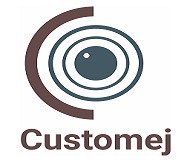Electroplating is a critical process in various industries, providing essential coatings that enhance corrosion resistance, wear resistance, and aesthetic appeal. Achieving sustainable quality performance in electroplating is not just about maintaining high standards of output but also ensuring that the processes are environmentally friendly, economically viable, and technically advanced. By integrating innovative technologies and expert guidance, businesses can significantly improve their electroplating operations.
The Role of Pulse Reverse Current Rectifier
One of the most impactful advancements in the electroplating industry is the use of Pulse Reverse Current Rectifier (PRCR). This technology has revolutionized how coatings are applied by providing superior control over the plating process. The PRCR works by alternating the current in a way that enhances the deposition of metal ions, resulting in more uniform and higher-quality coatings.
Advantages of PRCR in Electroplating
The Pulse Reverse Current Rectifier offers numerous benefits, including improved adhesion, reduced internal stress, and better corrosion resistance. By alternating the current, PRCR helps in minimizing the formation of dendrites and voids, which are common issues in traditional direct current plating. This results in a more consistent and durable finish, essential for applications where high performance is critical.
Implementing Electroplating Advisory Services
Another key strategy for achieving sustainable quality performance is leveraging Electroplating Advisory Services. These services provide expert insights and recommendations tailored to the specific needs of electroplating operations. From process optimization to troubleshooting and regulatory compliance, advisory services are invaluable in maintaining high standards.
Benefits of Professional Advisory Services
Engaging with Electroplating Advisory Services can lead to significant improvements in operational efficiency and product quality. Experts in the field can identify inefficiencies and suggest process improvements that reduce waste, lower energy consumption, and enhance the overall quality of the coatings. Moreover, these services often include training for staff, ensuring that best practices are understood and implemented across the board.
Enhancing Process Control and Monitoring
For sustainable quality performance, continuous monitoring and control of the electroplating process are crucial. Advanced monitoring systems can track various parameters such as temperature, current density, and electrolyte composition in real-time. This data is essential for making informed adjustments that keep the process within optimal ranges.
Integrating Advanced Monitoring Technologies
Modern electroplating facilities are increasingly adopting Internet of Things (IoT) technologies and automated systems for enhanced monitoring. These technologies provide real-time data analytics, enabling proactive management of the electroplating process. By identifying potential issues before they escalate, businesses can avoid costly downtimes and maintain consistent quality.
Emphasizing Environmental Sustainability
Sustainability in electroplating goes beyond the immediate production process. It involves minimizing the environmental impact through efficient resource use and waste management. Implementing eco-friendly practices and technologies can significantly reduce the environmental footprint of electroplating operations.
Eco-Friendly Electroplating Practices
Adopting green chemistry principles and using less hazardous materials are essential steps towards sustainable electroplating. Additionally, recycling and reusing materials wherever possible can lead to substantial environmental benefits. Innovations such as closed-loop systems for water and waste treatment help in reducing pollution and conserving resources.
Training and Development for Continuous Improvement
Human resources are a critical component of sustainable quality performance. Continuous training and development of staff ensure that they are well-versed in the latest technologies and best practices in electroplating. A knowledgeable workforce is better equipped to implement and maintain high-quality standards.
Investing in Workforce Development
Companies should invest in regular training programs that cover new technologies, safety protocols, and environmental regulations. Workshops and certifications provided by industry experts can enhance the skill set of the employees, leading to more efficient and sustainable operations. Encouraging a culture of continuous improvement among staff can drive innovation and excellence.
Collaborating with Industry Experts
Collaborating with industry experts and organizations can provide valuable insights and resources for improving electroplating processes. Partnerships with research institutions and participation in industry forums can keep businesses abreast of the latest developments and trends.
Leveraging Industry Networks
By engaging with industry networks, companies can access a wealth of knowledge and experience. These collaborations can lead to innovative solutions and improvements that might not be achievable in isolation. Additionally, industry experts can offer guidance on regulatory compliance, helping businesses navigate the complex landscape of environmental and safety standards.
Future Trends in Electroplating
Looking ahead, the electroplating industry is set to benefit from advancements in nanotechnology, automation, and artificial intelligence. These innovations promise even greater precision, efficiency, and sustainability. Staying updated with these trends and integrating them into existing practices will be essential for maintaining competitive advantage and achieving continuous improvement.
Conclusion
Achieving sustainable quality performance in electroplating requires a multifaceted approach that integrates advanced technologies, expert advisory services, continuous process monitoring, environmental sustainability, and workforce development. By leveraging the benefits of Pulse Reverse Current Rectifier and engaging with Electroplating Advisory Services, businesses can enhance their operational efficiency, product quality, and environmental responsibility. For more detailed insights and expert support, visit theadvint.com. Embracing these strategies will not only improve current operations but also position businesses for long-term success in an increasingly competitive and environmentally conscious market.



